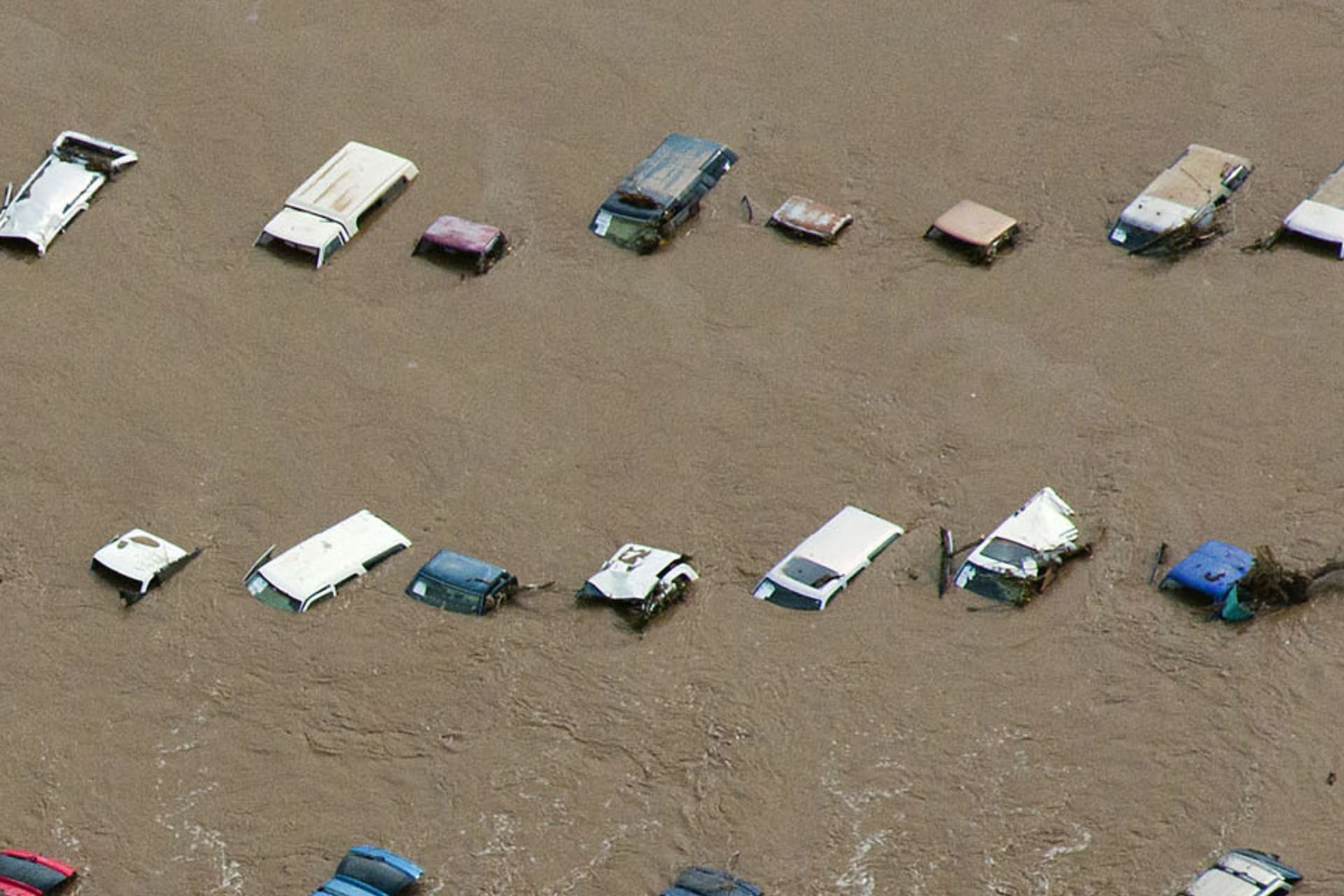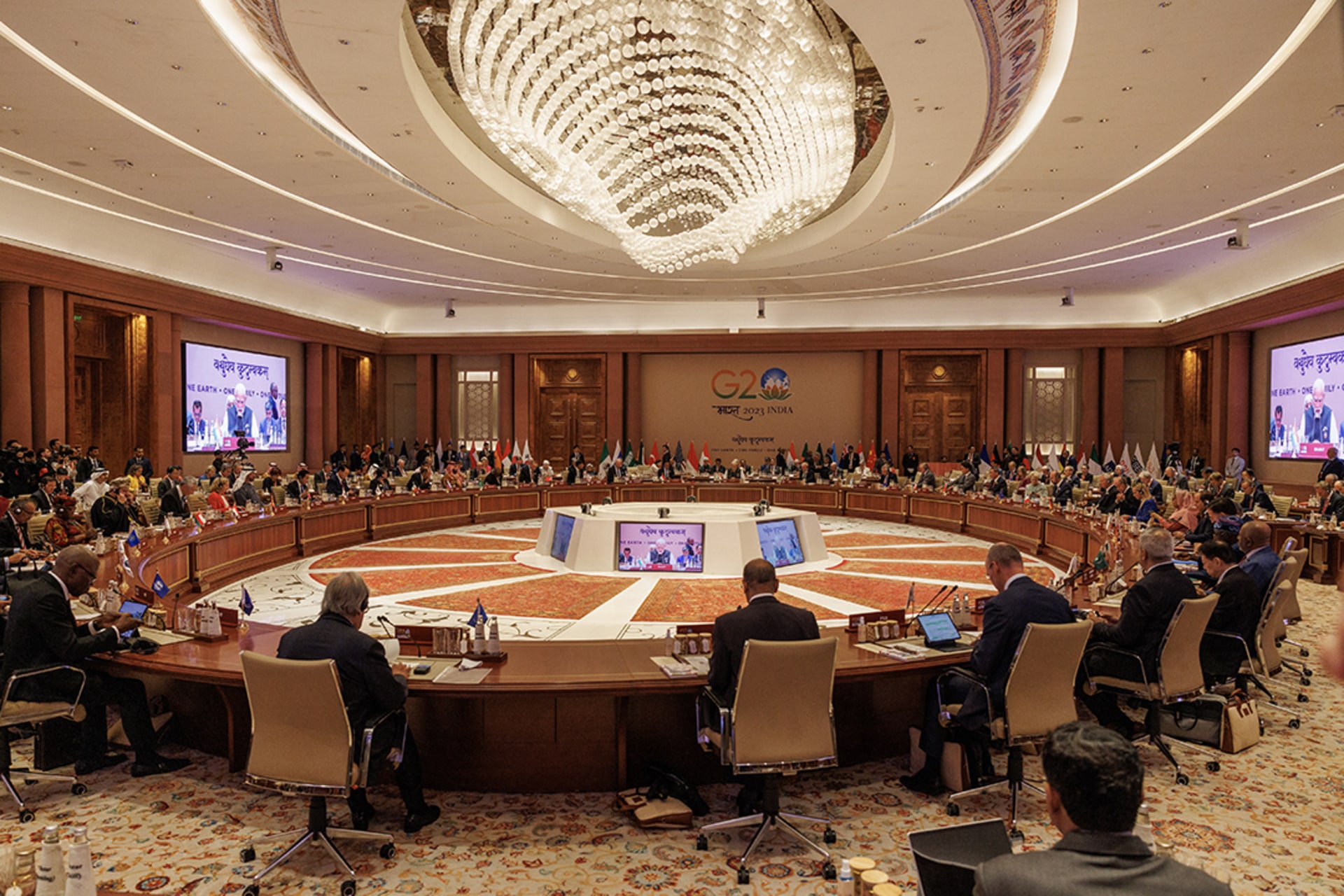IRAQ: The Bremer Edicts
Published
This publication is now archived.
Does the new martial law policy solidify Iraqi control of the country?
Not entirely. The new security measures Iraqi Prime Minister Ayad Allawi announced July 6 give the government sweeping powers to combat the insurgency and signal the new government’s desire to exercise independent authority. But Iraqi security forces are ill-equipped to crush the insurgents on their own and will rely on the 160,000 foreign forces in Iraq to maintain stability. And in many other areas, Allawi’s government is still legally bound by some 100 orders issued by L. Paul Bremer III, who headed the Coalition Provisional Authority (CPA) before it was dissolved June 28.
What is the new martial law policy?
It allows Allawi to declare a state of emergency in any part of Iraq where a danger exists from “an ongoing campaign of violence.” Once a state of emergency is declared, the government can impose a curfew, monitor telephone and other communications, and freeze assets of suspected insurgents. A state of emergency is limited to 60 days and requires the unanimous approval of the Presidential Council: the president, a Sunni Arab, and the two vice presidents, one a Kurd and the other a Shiite.
What is covered by the Bremer orders?
They apply to broad areas of Iraqi law and governance. Among them are edicts that granted foreign soldiers and contractors immunity from Iraqi law, opened Iraq’s economy to foreign investment, and authorized Bremer to appoint Iraqi commissioners to oversee the functioning of the new Iraqi Interim Government (IIG). The orders remain in effect until the IIG modifies or rescinds them according to rules laid out in the Transitional Administrative Law (TAL), Iraq’s interim constitution. Experts say they expect some, but not all, of the orders to be changed.
Do the new measures permitting martial law conflict with Bremer’s orders?
Not directly, because Bremer’s orders do not specifically refer to martial law, says Noah Feldman, an associate professor of law at New York University and a former CPA adviser. But Allawi’s bold moves to assert authority may be a sign that Bremer’s edicts are vulnerable, some experts say. The IIG “may leave some of Bremer’s orders in place if it suits them. But I would not make any assumption that any of them is going to last,” says Marina S. Ottaway, a senior associate at the Carnegie Endowment for International Peace.
Do the Bremer edicts limit Iraq’s sovereignty?
To a degree. Two in particular impose significant restrictions, says Nathan Brown, a professor of political science and international affairs at George Washington University and the author of a recent article on Bremer’s rulings. Order 17 grants immunity from Iraqi law to all members of the U.S.-led multinational force in Iraq, as well as to foreign contractors and diplomats. Order 57 establishes independent inspectors general in every Iraqi ministry who are authorized to conduct investigations, audits, evaluations, and other reviews. The Bremer-appointed inspectors serve five-year terms.
What is the process for changing the Bremer rules?
Allawi and his Council of Ministers propose a change that legally supercedes one of Bremer’s edicts and win the unanimous approval of the Presidential Council. However, a 100-member Iraqi National Council, due to be formed in July, can veto any Allawi decision if two-thirds of the council oppose it. Once an elected government is in place after January 2005, law-making authority will shift to a 275-member transitional assembly.
Can the TAL be changed?
According to the TAL, it cannot be changed until a permanently elected government is in place. However, some experts say the TAL’s status in international law is uncertain, and leading Shiite cleric Grand Ayatollah Ali al-Sistani has said he does not recognize laws passed under the occupation. The TAL would have had clearer standing had it been mentioned in U.N. Security Council Resolution 1546, which formally ended the occupation. But because of Shiite objections to some of the TAL’s provisions, it was not.
Did Iraqis participate in creating the orders?
In some cases, Brown says, Bremer issued orders after considerable consultation with the Iraqi Governing Council (IGC), the 25-member group of Iraqi leaders handpicked by the United States that served as an interim government under coalition control between July 2003 and June 2004. But before the IGC was formed, there was little Iraqi consultation, former CPA officials say. Nineteen edicts were enacted during that period. After the IGC was formed, CPA consultation occurred irregularly, Brown says. In addition, the Iraqi public was rarely told of the edicts before they were enacted, he says. “Almost all CPA orders were issued in English; they have been translated into Arabic only after going into effect,” he says. The CPA issued the laws as the legal caretaker of Iraq under the terms of U.N. Security Council Resolution 1483, which recognized the coalition as an occupying power. That document charged the CPA with creating “conditions in which the Iraqi people can freely determine their own political future.” All the edicts were signed by Bremer alone.
Why were they enacted?
Bremer says they were necessary to get the country on the road to economic recovery, create a legal framework on which a democratic system could be built, and modernize the legal code left from the Saddam Hussein era. Laws opening the economy helped goods flow into the country after more than a decade of U.N. sanctions imposed after Iraq’s defeat in the 1991 Gulf War, and oversight commissions and auditors in ministries were seen as important tools to fight corruption. “You set up these things and they begin to create a certain life and momentum on their own—and it’s harder to reverse course,” Bremer told The Washington Post in a recent interview. Some of the laws, such as the immunity clause, also laid the legal groundwork for the occupation.
What is likely to happen to the orders?
Some are likely to be changed, or, perhaps more likely, not enforced. “A lot will simply happen through non-obedience. The orders won’t be formally overturned, they will just be ignored,” says Kenneth Katzman, a specialist in Middle East affairs at the Congressional Research Service. Brown says he expects Iraqis to draft new legislation slowly, “piece by piece,” instead of rejecting all CPA laws wholesale. “Many, many of the edicts passed by the CPA have been very important for Iraq’s progress towards democracy,” Rend al-Rahim, Iraq’s ambassador-designate to the United States, said June 29 at the American Enterprise Institute (AEI). But, she added, “the incoming government will work in the light of the exigencies that it finds itself in ... so I would not be surprised ... if the interim government does a U-turn on some of those edicts.”
Have any edicts been changed?
Yes, but by Bremer, not the Iraqis. As one of his final acts, Bremer revoked all CPA orders and directives relating to de-Baathification, the controversial process that banned all Baath Party members above a certain rank from posts in the occupation government. In April, Bremer announced that he would liberalize the law, which he said had been unfairly applied. On June 28, he went further, formally disbanding the Iraqi De-Baathification Council headed by former IGC member Ahmad Chalabi. The interim government is expected to set up a new de-Baathification council that may have more permissive rules. “We need to bring more people in, engage them more,” Rahim said in her AEI speech. “They may not be perfect democrats, and some may be Baathists, not just former Baathists, but current Baathists. It’s very hard for me to say that, but I think we must face that necessity,” she said.
Are any edicts likely to change soon?
Yes. The death penalty is likely to be reinstated quickly. Bremer suspended the death penalty on June 9, 2003. Interim Iraqi President Ghazi al-Yawar said June 30 that the new government plans to reinstate it in accordance “with rules which comply with the norms in most countries of the world.” The upcoming trial of Saddam Hussein has made the re-imposition of the death penalty a pressing matter, experts say. “We want a restricted death penalty, for a limited time, until there are elections and Iraqis can decide for themselves,” Allawi told Spanish daily El Pais July 7.
Another edict likely to be challenged is the law on political parties, which bans candidates with ties to militia groups from running for office. There have already been some indications that this will be changed, Ottaway says—perhaps as part of a deal to allow anti-occupation figures like radical Shiite cleric Muqtada al-Sadr to join the political process.
What is the likely fate of the economic laws enacted by the CPA?
It’s unclear. Bremer’s rulings in this area include a foreign investment law that allows foreigners to invest in all areas of the Iraqi economy except oil and gas; the establishment of an independent central bank; a new tax code that sets a top tax rate of 15 percent for corporations and individuals; and new securities trading and copyright laws. These laws are in line with International Monetary Fund and World Bank recommendations but are unusually liberal for the Arab world, experts say. Even so, they received little attention when they were announced.
What other areas of national life are affected?
- National security: Orders 68 and 69 give the national security adviser and the national intelligence chief appointed by Allawi five-year terms. This means the transitional government, scheduled to be elected in January 2005, will not be able to choose new candidates for these posts.
- Independent oversight commissions: Bremer created independent commissions—similar to those in the United States—to license and regulate national media and communications and establish public broadcasting rules. He named a public integrity commissioner who will have the power to refer corrupt government officials for prosecution, and a judicial council to oversee judges and investigate allegations of professional misconduct.
- Elections: Order 92, approved May 31, 2004, created a seven-member independent election commission to organize and direct Iraqi elections. This panel, appointed by Bremer after consultation with the IGC, has the power to disqualify candidates who fall short of provisions of two other edicts: the electoral law, and the political parties law. The election law, among other things, mandates that one in three candidates on each party’s slate be female.
- Civil society: Order 45 gives nongovernmental organizations in Iraq permission to operate freely. In many other countries in the region, NGOs are strictly monitored and regulated, Brown says.
What’s the likely fate of these orders?
It’s unknown. “These ‘good governance’ structures are unusually extensive by the standards of the Arab world,” Brown says. “The media commission, public broadcasting board, and judicial council are far more independent and empowered than in other countries in the Arab world; even having an independent electoral commission is almost unprecedented.” If these institutions take hold in Iraq, they could help the transformation from dictatorship to democracy. But their fate is far from certain. “We’ve had setbacks in security obviously, and that in turn has led to setbacks in things like electricity,” Bremer said in an interview June 27 with the Los Angeles Times. “But I was sent out here to do a job, and I was able in the course of the year to put in place ... a lot of ... political and economic structures that are still fragile, no doubt, but which can serve the Iraqis well.”t
Colophon
Staff Writers
- Sharon Otterman





